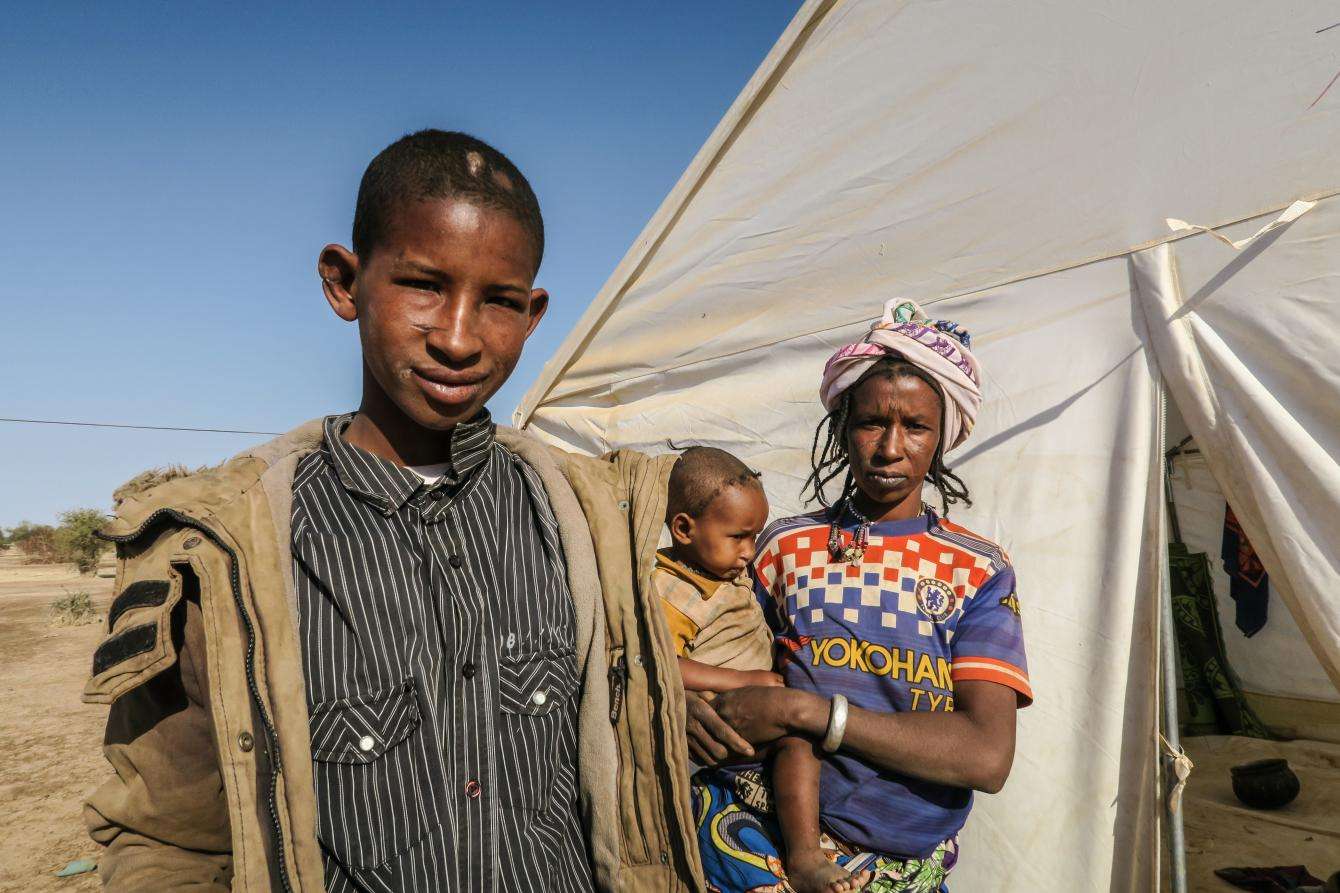Machetes, guns, smoke from burning houses: These are the last memories many displaced people carry with them after being forced to flee their villages in the Centre-Nord region of Burkina Faso. “I was in the bush, this is where they caught me,” says 17-year-old Dicko. “They wanted to know where my friends were hiding. But I was just by myself.” Armed men attacked him with a machete, wounding his ear and head and knocking him down. “Once they went away, I ran to the village to find my parents. Our house was burnt! But fortunately, we were together with my family. We walked until we reach the camp here, in Barsalogho.”
After violence erupted in Burkina Faso’s Centre-Nord and Sahel regions in early 2019, thousands of people had no choice but to flee their homes, leaving their belongings behind. They sought shelter in the nearby villages of Foubé, Barsalogho, Arbinda, Kelbo, and Déou. The hastily erected camp for displaced people in Barsalogho now hosts more than 900 people—Dicko and his family among them. After they fled, Dicko’s mother cleaned his wounds with warm water. Once the family arrived in the camp, a medical team supported by Doctors Without Borders/Médecins Sans Frontières (MSF) cleaned the wounds with antiseptic solutions to stave off infection.

In Barsalogho camp, families live in tents installed by Burkina Faso's government and cook for themselves with pots and pans donated by the local community and authorities. Donated bags of corn and other foods have been made available as well. But water supplies are a problem in the camp, as there is no natural spring nearby. Instead, tanker trucks drive each day to the closest city of Kaya, more than an hour away from the camp, to bring back water for distribution.
Other sites where displaced people have gathered are in even worse shape. In Foubé, for example, many tents have still not been set up. The lack of adequate shelter has left some 8,000 people to live in extremely close quarters, increasing the risk of outbreaks of diseases like measles.
MSF sent emergency teams to support the local response in Foubé and Barsalogho camps, however significant needs remain. MSF is working with local health teams to minimize the risk of measles and other outbreaks. More than 2,100 children were vaccinated against measles in Foubé during the first day of a campaign aimed at vaccinating 7,000. Another 600 were vaccinated in Barsalogho. Each week, MSF-supported medical teams consult more than 300 people in Foubé and more than 200 in Barsalogho, most of whom suffer from respiratory infections, malaria, and parasitic diseases.
Despite this response, more help is needed to improve conditions in the camps and provide adequate care for people like Dicko and his family. “All actors involved in the response should ensure that the displaced populations have access to drinking water and that the camps maintain a certain level of hygiene,” said Idrissa Compaoré, MSF Medical Coordinator in Burkina Faso. “Essential medicines should be available in sufficient quantities and stored away from heat and dust.”




